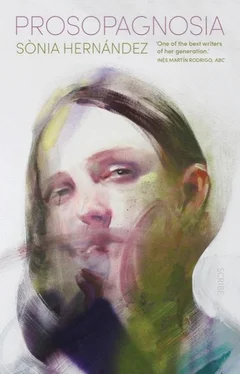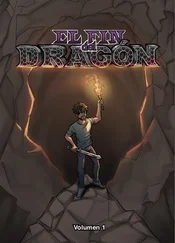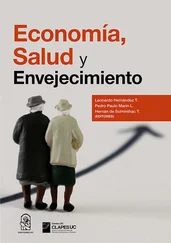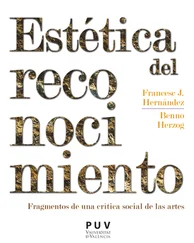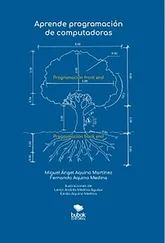A few days after the interview was published, I returned to the newspaper’s offices and went to over to greet the editor of the culture section. He was friendly, and he congratulated me on my work. We spoke superficially for a few minutes about the philosopher’s theories as shown by his responses in the interview. When we seemed to have run out of things to say on that topic, I told him that now that I’d started writing for the culture section, I wanted to keep doing so, and that he should assign me more projects. By the way he looked at me — a smile that couldn’t quite hide a feeling of awkward surprise — I realised I’d done the wrong thing. Maybe the door to the next successful phase of my professional life wasn’t open after all. ‘OK, propose some projects, pitch some articles, and I’ll take a look at them.’ He hadn’t even finished his sentence when a regular contributor to the culture section approached, a man I’d overheard discussing Schopenhauer on many occasions.
The editor introduced us. He told the regular contributor that I was the author of the interview with the philosopher that had been published in the latest edition. ‘Ah,’ was the only response from the contributor. When the editor asked him what he had thought of it, the contributor began a long speech that I found difficult to follow, and which reminded me a lot of my boss’s diatribes at the publishing company. From the Schopenhauer specialist’s sermon all I retained was that one should be very careful when writing down philosophers’ names, and that it’s essential to double-check facts before accepting them as true, and, needless to say, before publishing them.
End result: all the happiness and pride I felt at the publication of the interview quickly evaporated. So, when the editor of a different culture section — this time from the capital city of the region — called me a few days later, I was certain it was to chastise me for something I’d written in the interview. I was certain that I’d done something wrong and I’d grossly offended someone. But he spoke to me in a friendly manner and let me know that he’d heard how I managed to sneak into the philosopher’s taxi, and that he’d read my interview. He was interested in meeting me. As you can imagine, that’s when I heard the hinges squeak as the doors to success and recognition finally opened for me.
At our first meeting, the editor of the culture section at the newspaper in the region’s capital wanted to know about my education and work experience. I told him about the publishing house and the regional newspaper. Then he asked me lots of questions about the interview in the taxi. Once more I repeated my spiel about wanting what you have so you can have what you want, the ethical guidelines for harmonious relations between neighbours which will allow human beings to overcome the existential void and the certainty of civilisation’s doom. Obviously, he was evaluating my knowledge, so he wore a look of genuine interest, and I held forth with the self-assured manner of someone who is sure she has arrived at the highest planes of privilege, where a position has been waiting for her for some time.
He told me that over the past few months, several publishing houses had been putting out books of accessible philosophy. I didn’t want to think about what the Schopenhauer expert might have thought about my article on the popular philosopher, because I was already considering writing something that would inform potential readers about these new philosophy titles. The editor of the culture section at the regional capital’s newspaper seemed pleased, because he promised more assignments in the near future.
I ended up finding out what the Schopenhauer expert thought anyway, because one afternoon I bumped into him again at the offices of the regional newspaper. On that occasion, it was he who approached me at my workstation, and, without any preamble at all, he began talking to me about epigones — a word whose meaning was unknown to me at the time — and frivolous commercial projects. The only argument I could raise in my defence was that I was just trying to spread the word about newly published books, but that didn’t convince him. I heard the words epigone and frivolous all over again. When he left, I noticed that the editor of the culture section of the regional newspaper had a smug smile on his face.
The times I was told off by my boss at the publishing house and the Schopenhauer expert melded in my mind and tortured me in endless nightmares while I slept, then swirled in my mind all day long. I lived in fear of all those words, and I heard them echoing so loudly in my head that I was convinced that if somebody got close enough — on the bus, for example — they’d be able to hear the voices of those two people shouting about how ignorant I was and how incapable of writing anything with the slightest amount of rigour. When I met someone in the street, I could only imagine what that person thought of me, because I already knew that I was completely incapable of getting anything done properly. At night, in that intermediary zone between wakefulness and sleep, I imagined how quickly my life would be ruined when my bosses at both newspapers, and the journalists who worked there, told everyone how incapable I was of doing anything worthwhile. My life would soon come to an end, because even Pablo, whom I had been seeing for several years at that stage and who had professed unconditional love for me, would surely leave.
Despite everything, I was given more assignments, for both newspapers. I had to learn how to walk around the offices without my legs trembling and without constantly blushing. I had to stay very alert, because I knew that at any moment they might spring a trap on me that would reveal without doubt how farcical the life I was attempting to lead really was. There was no room in journalism for people like me. For a time, I was getting regular work, and I flitted between the happiness I felt at each assignment (of course I never dared to pitch anything myself, I was too afraid of everything) and the terror I felt whenever I turned something in. The night before one of my pieces was to be published, I could barely sleep, and when I finally drifted off I had nightmares about the terrible mistakes I had made in my articles. There was no point going over it a thousand times before submitting, there would always be an error or a typo. It got so that I had doubts over the meaning and spelling of the simplest words and even over my own mental health. I wondered if I’d contracted some kind of illness where my brain no longer sent information correctly to my hands or mouth when I wrote or spoke.
The long-awaited day when my life would end because everyone discovered how hopeless I was never arrived. Or maybe it did arrive, and it was just much subtler than I had imagined. Pablo passed his public exams and to celebrate, he asked me to move in with him, which I did. More time passed and Berta was born, then someone told Pablo that an insurance company was looking for someone trained in communications for a job in their press department. We both agreed that this would provide much-needed stability, given that we had just started a family. Every time I sent a press release or made a call, my whole body shook, but I learned to live with it.
Although the time between each article in the newspapers grew longer and longer, I never pulled away fully, especially from the newspaper in the regional capital. But the regional newspaper folded not long after I went to live with Pablo. Which is all to say, that in a certain sense, I actually was close to the end of something, the whole time I worked there. Isabel had risen to become editor in chief of the newspaper in the regional capital, and we had remained friendly. We kept on running into each other and making dinner dates we never kept. Even so, she was still my closest, most concrete connection with the newspaper. When I called her to pitch the interview with Vicente Rojo, I knew she was pleased and surprised in equal parts. Later on, the idea that we could scoop the other newspapers over the artist’s visit had excited her enough to encourage me to write something, anything, and soon, even though I wasn’t used to writing things like that.
Читать дальше
